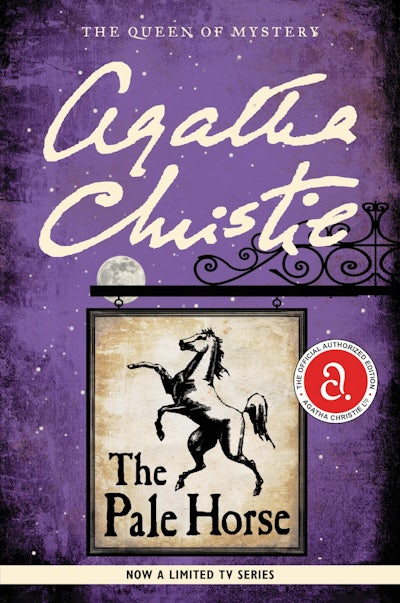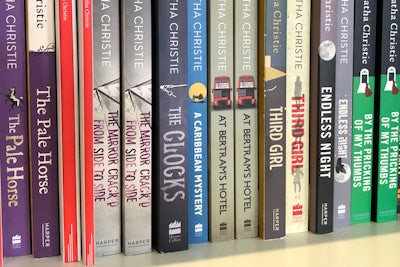The Pale Horse

To understand the strange goings on at The Pale Horse Inn, Mark Easterbrook knew he had to begin at the beginning. But where exactly was the beginning? Was it the savage blow to the back of Father Gorman’s head? Or was it when the priest’s assailant searched him so roughly he tore the clergyman’s cassock? Or could it have been the priest’s visit, just minutes before, to a woman on her death bed?
Or was there a deeper significance to the violent squabble which Mark Easterbrook had himself witnessed earlier? Wherever the beginning lies, Mark and his sidekick, Ginger Corrigan, may soon have cause to wish they’d never found it.
Life is always dangerous—never forget that. In the end, perhaps, not only great natural forces, but the work of our own hands may destroy it.
More about this story
The Pale Horse combined two ideas that Agatha Christie had been considering. One, a book "would start somehow with a list of names ... ". The other reintroduced Christie's earlier thoughts about "Voodoo etc., White Cocks, Arsenic? Childish stuff - work on the mind and what can the law do to you? Love Potions and Death Potions, - the aphrodisiac and the cup of poison. Nowadays we know better - Suggestion."
This novel is notable among Christie's books as it is credited with having saved at least two lives after readers recognised the symptoms of thallium poisoning from the description in the book. In 1975, Christie received a letter from a woman in Latin America who had thus saved a woman from slow poisoning by her husband and in 1977, a nurse who had been reading The Pale Horse correctly suggested that a baby in her care was suffering from thallium poisoning. In another instance, in 1971, a serial killer, Graham Frederick Young, who had poisoned several people, three fatally, was caught thanks to this book. A doctor conferring with Scotland Yard had read The Pale Horse and realised that the mysterious "Bovingdon bug" was actually thallium poisoning.
The black magic theme is handled in a masterly and sinister fashion, and to give away what lay behind it would be unforgivable. This is a book which nobody should miss.
The title of this book comes from the Revelation of St John the Divine, chapter 6, verse 8. “And I looked, and behold a pale horse: and his name that sat on him was Death, and Hell followed with him...” It was published in 1961 by Collins Sons in London, and in 1962 by Dodd, Mead & Co. in the US. It was adapted by Anglia TV in the UK in 1996 without Ariadne Oliver and by ITV in 2010 with the addition of Julia Mckenzie as Miss Marple and the omission of Ariadne Oliver, Colonel and Rhoda Despard and Mrs Dane Calthrop. It was dramatised for BBC Radio 4 and released in 2010. The latest adaptation of The Pale Horse aired in the UK on BBC One in February 2020, and is now available on BBC iPlayer. It was released in the US on Amazon Prime in March 2020.


 UK
UK 








